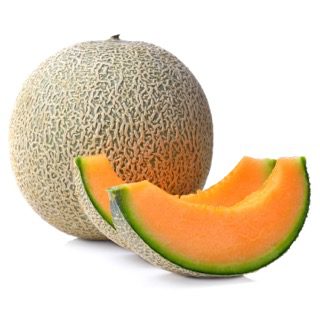

Cantaloupe is a safe and healthy treat for dogs. It is a great source of vitamins and minerals that boost their immune system and aid digestion. However, it is important to remove the skin and seeds, as they can be a choking hazard.
Cantaloupe is packed with nutrients that nourish a dog’s body and boost their immune system. It is an excellent source of vitamin B6, niacin, folate, vitamin A, vitamin C, and potassium. The high fiber and water content aid in proper digestion and rehydration. Additionally, cantaloupe is rich in antioxidants, promoting healthy cell function and reducing the risk of certain diseases in dogs.
While cantaloupe is generally safe for dogs, there are some risks to be aware of. Ingesting cantaloupe rinds can cause gastrointestinal upset and may obstruct the dog’s digestive tract. The tough fibrous skin is also a choking hazard. Furthermore, the fruit is high in sugar content and not suitable for diabetic dogs or those who are overweight.
To serve cantaloupe to your dog, remove the skin and seeds and cut it into bite-sized pieces. Feed it to your dog in moderation as a healthy and low-calorie treat. Ripe cantaloupe can be eaten fresh or frozen.
Cantaloupe, also known as muskmelon or rockmelon, originated in Persia and is now widely cultivated in many regions worldwide. It is commonly used in salads, smoothies, and desserts. Cantaloupe is an affordable and easy-to-access fruit that can be found in most grocery stores.
For dogs, cantaloupe can provide a range of benefits. It is an excellent source of vitamins and minerals that boost their immune system and aid digestion. Cantaloupe is also rich in antioxidants, promoting healthy cell function and reducing the risk of certain diseases in dogs.
However, it is important to note that the skin and seeds of cantaloupe can be a choking hazard and may cause gastrointestinal upset. Therefore, it is crucial to remove the skin and seeds before feeding it to your dog. Additionally, the fruit is high in sugar content and not suitable for diabetic dogs or those who are overweight.
To serve cantaloupe to your furry friend, cut it into bite-sized pieces and feed it to them in moderation as a healthy and low-calorie treat. You can even freeze it for a refreshing snack during hot summer days.
If your dog doesn't like cantaloupe or can't have it, there are other alternatives such as watermelon and honeydew melon.
Have you tried feeding your dog cantaloupe before? How did they like it? Remember to always consult with your veterinarian before adding new foods to your dog's diet.
Keep your furry friend healthy and happy with nutritious treats like cantaloupe!